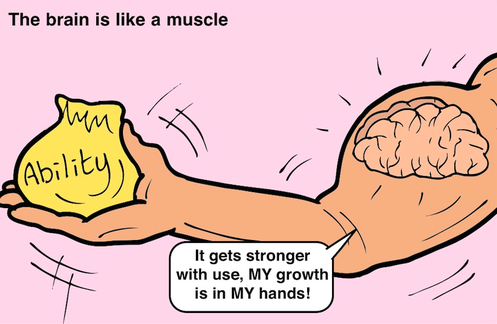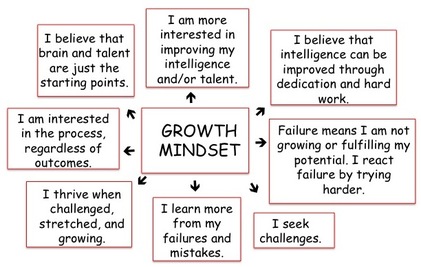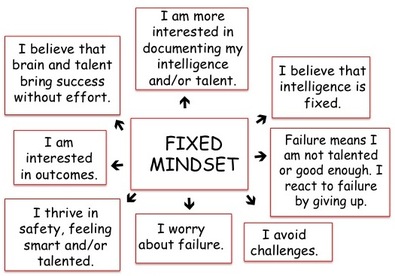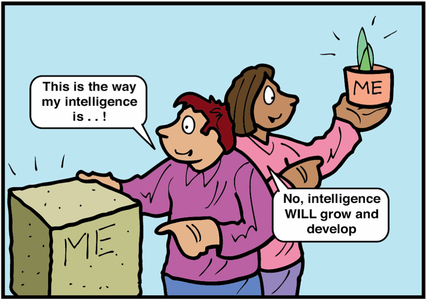
"A few modern philosopher’s assert that an individual's intelligence is a fixed quantity, a quantity which cannot be increased. We must protest and react against this brutal pessimism... With practice, training, and above all, method, we manage to increase our attention, our memory, our judgment and literally to become more intelligent than we were before" states Binet, the French psychologist who invented the first IQ test to identify students falling behind their peers.
Even though Carol Dweck came up with the concept 'mindset', controversies about intelligence have lasted for a long time; whether people are born smart or intelligence can be improved.
Everybody has their mindsets; either fixed or growth. When people have a growth mindsets they believe that their intelligence is not fixed and will improve by effort. On the other hand, when they have a fixed mindset they believe their intelligence is set at birth and it cannot change. Whichever mindset the students have affects the person they become.
Below, you can see different characteristics of these different mindsets:
|
In the video below, you can listen to Carol Dweck talking about mindsets and how different characteristics affect students in the long run.
|
So, why is having a growth mindset important? What are the benefits of having a growth mindset? In the video below, you can find answers to these questions. |
Activity: Have a look at the cartoon below. Think what kind of mindset the girl has and what evidence you can find for her mindset?
Having a fixed or a growth mindset orients students toward achievement-related goals. When students have a fixed mindset they are performance oriented in their learning and when they have a growth mindset they are learning/mastery oriented in their learning. To learn more about goal orientation, click here.





